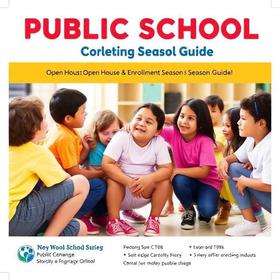Top Rankings
White Hall School District ranks among the top 20% of public school district in Arkansas for:
Category
Attribute
Graduation Rate
Highest graduation rate (Top 10%)
Community Size
Largest student body (number of students) (Top 1%)
For the 2025-26 school year, there are 5 public elementary schools serving 2,093 students in White Hall School District. This district's average elementary testing ranking is 7/10, which is in the top 50% of public elementary schools in Arkansas.
Public Elementary Schools in White Hall School District have an average math proficiency score of 43% (versus the Arkansas public elementary school average of 45%), and reading proficiency score of 45% (versus the 39% statewide average).
Minority enrollment is 39% of the student body (majority Black), which is less than the Arkansas public elementary school average of 43% (majority Black).
Overview
This School District
This State (AR)
# Schools
6 Schools
710 Schools
# Students
3,068 Students
299,886 Students
# Teachers
214 Teachers
19,958 Teachers
Student-Teacher Ratio
14:1
14:1
Student By Grade
District Rank
White Hall School District, which is ranked within the top 50% of all 257 school districts in Arkansas (based off of combined math and reading proficiency testing data) for the 2022-2023 school year.
The school district's graduation rate of 92% has increased from 87% over five school years.
Overall District Rank
#103 out of 258 school districts
(Top 50%)
(Top 50%)
Math Test Scores (% Proficient)
38%
39%
Reading/Language Arts Test Scores (% Proficient)
42%
40%
Science Test Scores (% Proficient)
38%
36%
Graduation Rate
92%
88%
Students by Ethnicity:
Diversity Score
0.55
0.61
% American Indian
1%
1%
% Asian
3%
2%
% Hispanic
4%
15%
% Black
27%
19%
% White
61%
57%
% Hawaiian
1%
1%
% Two or more races
3%
5%
All Ethnic Groups
District Revenue and Spending
The revenue/student of $11,607 in this school district is less than the state median of $13,136. The school district revenue/student has declined by 5% over four school years.
The school district's spending/student of $14,346 is higher than the state median of $13,047. The school district spending/student has declined by 5% over four school years.
Total Revenue
$36 MM
$6,371 MM
Spending
$44 MM
$6,327 MM
Revenue / Student
$11,607
$13,136
Spending / Student
$14,346
$13,047
Best White Hall School District Public Elementary Schools (2025-26)
School
(Math and Reading Proficiency)
(Math and Reading Proficiency)
Location
Quick Facts
Rank: #1 - 21. - 2.
Hardin Elementary School
(Math: 55-59% | Reading: 45-49%)
Rank:
Rank:
9/
Top 20%10
700 Schoolwood Dr
Redfield, AR 72132
(501) 397-2450
Redfield, AR 72132
(501) 397-2450
Gr: K-5 | 259 students Student-teacher ratio: 14:1 Minority enrollment: 20%
Rank: #1 - 21. - 2.
Moody Elementary School
(Math: 55-59% | Reading: 45-49%)
Rank:
Rank:
9/
Top 20%10
700 Moody School Dr
White Hall, AR 71602
(870) 247-4363
White Hall, AR 71602
(870) 247-4363
Gr: K-5 | 404 students Student-teacher ratio: 16:1 Minority enrollment: 35%
Rank: #33.
Taylor Elementary School
(Math: 40-44% | Reading: 53%)
Rank:
Rank:
8/
Top 30%10
805 West St
White Hall, AR 71602
(870) 247-1988
White Hall, AR 71602
(870) 247-1988
Gr: K-5 | 369 students Student-teacher ratio: 14:1 Minority enrollment: 53%
Rank: #44.
White Hall Middle School
(Math: 39% | Reading: 44%)
Rank:
Rank:
7/
Top 50%10
8106 Dollarway Rd
White Hall, AR 71602
(870) 247-2711
White Hall, AR 71602
(870) 247-2711
Gr: 6-8 | 693 students Student-teacher ratio: 15:1 Minority enrollment: 41%
Rank: #55.
Gandy Elementary School
(Math: 35-39% | Reading: 35-39%)
Rank:
Rank:
5/
Bottom 50%10
400 Gandy Ave
White Hall, AR 71602
(870) 247-4054
White Hall, AR 71602
(870) 247-4054
Gr: K-5 | 368 students Student-teacher ratio: 14:1 Minority enrollment: 36%
Recent Articles

Charter Schools vs Public Schools 2025: Key Differences & Trends
Explore updated 2025 insights comparing charter schools vs public schools, enrollment, academic outcomes, funding, and real-world examples for families and educators.

Are Public Schools Ready for the 21st Century? 2025 Update
Explore 2025 insights on whether public schools are ready for the 21st century, covering performance, technology, equity, funding, and future-ready learning.

Public School Open House & Enrollment Season Guide
A parent-focused guide to the public school open house and enrollment season, with expert questions, timelines, and decision tips.





